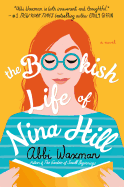
Abbi Waxman applies her signature wit and warmth to bookseller and consummate introvert Nina Hill's journey in her third novel, The Bookish Life of Nina Hill. Mostly happy with her life in Los Angeles, Nina lives alone (with her cat, Phil) in a small guest cottage arranged to her liking and earns a living working at Knight's, an independent bookstore nearby. When she's not selling books or reading them, she spends her evenings killing it at trivia competitions (as part of the crack team Book 'Em, Danno) and intending to go to yoga or spin classes.
A millennial who soaks up information (trivial and otherwise) like a sponge, Nina nevertheless lives mostly in her own head instead of online as many of her peers do. Waxman lets readers in on the fun, capturing Nina's smart, eccentric third-person inner voice as she navigates the daily challenges of life, and then as she's forced to reckon with several seismic changes.
Raised chiefly by her beloved nanny while her Australian photographer mother travelled the world, Nina has never felt the lack of a family. But when her estranged father, William Reynolds, dies suddenly, his lawyer tracks down Nina and drops several bombshells, starting with the fact of her parentage. Now, Nina stands to gain both a potential inheritance and a large, unruly extended family that she isn't sure she wants. At the same time, Nina meets Tom, a fellow trivia wiz who might just prove interesting--and sexy--enough for Nina to embark on an actual relationship.
Nina's story unfolds in a series of intended-to-be-ordinary days, annotated frequently by pages torn out of her day planner. These are crisscrossed with notes, information, grocery lists and aspirations (including those spin classes), and they provide a clue to Nina's emotional state, especially regarding the new relationships she's juggling. Waxman captures the internal back-and-forth between Nina's rapacious intellect, her fairly sturdy self-esteem and her high levels of anxiety, which has led her to seek out constant ways to stimulate her brain. (She keeps busy partly to manage her anxiety: she knows that said brain would "drive her insane with endless meandering rivers of thought" if left to its own devices.)
As Nina gets to know her family, she comes to understand there's more at stake than a simple fight over an inheritance. William Reynolds was married three times and had children by at least four different women, and he seemed to be an entirely different man in each incarnation of family life. Every one of his ex-spouses and their children, understandably, have strong (and strongly expressed) opinions about their particular version of William, while Nina, never having met him, ends up sifting through the conflicting reports and trying to make up her own mind. Along the way, she acquires a few relatives she thinks she'd like to keep, including Peter, her perfectly turned-out, wisecracking nephew, and Millie, her 10-year-old half-sister and fellow bookworm. There are also, naturally, several relatives who drive her (and everyone) up the wall, most notably Nina's niece Lydia, who seems convinced that Nina (and the entire world) is out to take what's rightfully hers. Nina's family is an engaging and necessary foil to her solitary life. Waxman renders the characters in it--even Lydia--with keen-eyed detail and affection.
Waxman returns to her own neighborhood (also the setting of her two previous novels), the Larchmont area of Los Angeles, for Nina's story. The novel's supporting cast, made up of Nina's friends, acquaintances and customers at the bookstore, eventually comes to include characters from Waxman's prior works. Lili, the wry, kind-hearted graphic designer who starred in The Garden of Small Beginnings, and her daughters are a welcome addition to the narrative, especially when Nina finds a kindred fact-obsessed spirit in six-year-old Clare. Because this neighborhood functions like a village in the midst of a big city, the characters' lives intertwine with Nina's (and each other's) in surprising ways, as the bookstore where she works struggles to stay afloat and her relationship with Tom edges toward blossoming. Nina's repartee with Liz and Polly, her colleagues, is especially smart and entertaining.
Waxman has the gift of writing wisecracking, breezy novels that nevertheless contain some real growth for her characters. In this case, Nina is forced to re-examine the carefully constructed boundaries of her introverted life, and decide for herself which ones she wants to loosen and which ones she wants to keep. She doesn't undergo a radical personality change, nor does Waxman (or indeed anyone else) suggest that she should. But by the book's end, Nina is more able to function in the world as herself--and she's getting better at explaining to other people when she just needs a moment (or a day) alone.
Sunny and witty, packed with random trivia facts straight from Nina's encyclopedic reading, and peppered with literary references, Nina's story is a celebration of introversion, a love letter to independent bookstores and an insightful meditation on family and belonging. --Katie Noah Gibson

